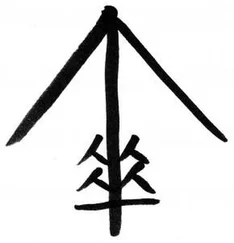The four chimneys belched thick black smoke; the wheels jounced along the rammed-earth street. Guo Wanchao had meant to sweep his cool gaze over the goings-on of the city, but due to the heavy vibrations, the passersby saw it as an amiable nod to all, and so all came over to bow and return the greeting to the General of the Cavalry. Guo Wanchao could only force a laugh and wave them off.
A massive cauldron of boiling water sat in the back of the carriage. Despite hours of explanation filled with fantastical jargon by the staff of the East City Institute, the general still didn’t understand how his vehicle functioned. Apparently it used fire-oil to boil the water. He knew that the stuff came from the southeast lands, and would burn at a spark and burn even harder on water. Defenders of a city would dump it on besiegers. This stuff boiled the water, and then somehow that made the carriage move. How was that supposed to work?
Regardless, the cauldron rumbled and bubbled, such that the armor at his back fairly sizzled from the radiating heat. He had to steady his silver helm with one hand so that it wouldn’t slip over his eyes every few bone-jarring feet. The General of the Cavalry had only himself to blame; inwardly, he bemoaned his decision to take the driver’s seat. Fortunately, he was approaching his destination. He took out his pair of black spectacles and put them on his sweating, greasy face as the carriage roared past streets and alleys.
A left turn, and the front gate of Xiqing Ward lay straight ahead. This was an era of degeneracy, insolence, and the collapse of the social order, to be sure: the residence walls were so full of gaps and holes that no one bothered to use the front gate. But Guo Wanchao felt that a high official ought to behave in a manner befitting the importance of his position. It just didn’t look proper without servants and guards leaping to action on his behalf.
But no one came to the ward gate to greet him. Not only was the warden missing, it seemed that the guards were napping in some hidden corner as well. Ancient scholar trees and cypresses lined the street, providing shade everywhere except in front of the completely barren front gate. It didn’t take long before Guo Wanchao, waiting in his stopped carriage, was panting and dripping sweat like rain.
“Guards!” he yelled. There was no response, not even a dog barking in acknowledgment. Furious, he jumped off the carriage and stormed into Xiqing Ward on foot. The residence of Minister Ma Feng was just south of the gate. Without bothering to speak to the doorkeeper, he shoved open the door to the minister’s residence and barged in, circling around the main building to head for the back courtyard. “Surrender, traitors!” he bellowed.
Pandemonium broke out. In a flash, the windows burst open front and back. Five or six escaping scholar-officials fought to escape by squeezing through the narrow openings, but only succeeded in tangling their flailing limbs and tumbling into a heap.
“Aiya, General!” Potbellied old Ma Feng had crept to the door and was peeking out the seam. He put a hand over his heart and thanked heaven and earth. “You mustn’t play this kind of trick on us! Everyone, everyone, let’s all go back inside! It’s just the General, nothing to be afraid of!” The old man had been so startled that his cap had fallen off, leaving his head of white hair hanging like a mop.
“Look at you!” Guo Wanchao smirked, an expression somewhere between amusement and ire. “How are you going to plot treason with so little courage?”
“Shhhh!” Old Ma Feng was given a second fright. He scurried over, took Guo Wanchao by the hand, and dragged him inside. “Careful! The walls out here aren’t so thick….”
The whole gang trooped back inside, latched the door, pressed the battered window panels back into their frames as best as they could, and gingerly took their seats. Minister Ma Feng pulled General Guo Wanchao toward a chair, but Guo shook him off and stood right in the middle of the room. It wasn’t that he didn’t want to sit; rather, the archaic armor he’d worn for its formidable appearance had nearly scraped his family jewels raw on the bumpy journey.
Old Ma Feng put on his cap, scratched at his grizzled beard, and introduced Guo Wanchao. “I’m sure everyone has seen the general at court before. We’ll need his help to accomplish our goals, so I secretly invited him here—”
A tall, rangy scholar in yellow robes interrupted. “Why does he wear those black spectacles? Does he hold us in such contempt that he covers his eyes to spare himself the sight?”
“Aha, I was waiting for someone to ask.” Guo Wanchao took off the black lenses nonchalantly. “It’s the latest curiosity from the East City Institute. They call it ‘Ray-Ban.’ They allow the wearer to see normally, and yet be spared the glare of the sun. A marvelous invention!”
“It hardly seems right for a man interested in enlightenment to reduce the reach of light,” grumbled the yellow-robed scholar.
“But who says banning rays is all I’m capable of?” Guo Wanchao proudly drew a teak-handled, brass-headed object from his sleeve. “This device, another invention from the East City Institute, can emit dazzling light that pierces darkness for a hundred paces. The staff from the institute didn’t give it a name, so I call it ‘Light-Saber.’ The banisher of rays and the sword of light! Brilliant, eh? It was a match made in heaven, haha….”
“Disgusting ostentation!” shouted a white-robed scholar as he wiped at the blood on his face with his sleeve. He had run too quickly earlier and tripped, and the cut on his forehead had bled all over his delicate scholar’s face, encrusting his fair skin with blotches the exact color of farmland mud. “Ever since the East City Institute was established, our proud State of Han has fallen further by the day! We’ve been under siege for months; the people are full of fear and dread. And your kind still revels in such, such—”
Ma Feng hurriedly tugged at the scholar’s sleeve, attempting to smooth things over. “Brother Thirteenth, Brother Thirteenth, please quell your anger. Let’s take care of business first!” The old man made an unhurried patrol of the room, drawing the curtains and carefully covering up the cracks in the windows. After a phlegmy cough, he took out a three-inch square of bamboo paper from his sleeve and displayed it to his audience, who saw that it was covered with characters the size of gnats’ heads.
Ma Feng began to read in a low voice. “Sixth month of the sixth year of the Guangyun Era. [13] The sixth year of Guangyun corresponds to 979 CE. Liu Jiyuan (the young emperor in Jinyang) had been ruler of Northern Han since 968 CE, but did not initially adopt a new era name.
Great Han is weak and benighted, and the fires of war rage in the twelve provinces around us. We have fewer than forty thousand households, and our peasants cannot produce enough to equip our soldiers with strong armor and weapons. Beset by droughts and floods, our fields lie bare while the wells are exhausted, and our granaries and stores are empty. Meanwhile we still must pay tribute to Liao in the north and guard against mighty Song to the south, stretching the treasury beyond its capacity. The peasants have no food, the officials have no pay, the roads are lined with those dying of starvation, the horses have no grass to graze, the state is poor, and its people are piteous! Woe is the land! Woe is Great Han!”
“Woe,” the roomful of scholars lamented in sync; then, they immediately chorused, “Well said!”
But Guo Wanchao glared at the speaker. “Enough of this flowery oratory! Get to the point!”
Ma Feng took out a brocade handkerchief and wiped the sweat from his forehead. “Yes, yes, there no need for me to continue reading from the formal denunciation. General, you know well that after such a long siege by the Song army, Han is at the end of its strength, while the Song ruler Zhao Guangyi has made the conquest of the city a matter of personal honor. His edict declared that ‘Han has long disobeyed the will of the rightful ruler, acted heedless to the right way, and governed the people ruinously. For the sake of the land and the people, I personally come to pacify Han in the name of justice.’
Читать дальше












